Photographs: Courtesy ISKCON Food Relief Foundation Sanjeev Nayyar
Sanjeev Nayyar gets inside a kitchen that’s more than just feeding hungry children; it is liberating them -- irrespective of caste, creed, sex or religion -- not just on the physical level but also on a spiritual level.
The mid-day meal scheme is the world’s largest school feeding programme reaching out to about 12 crore children in over 12.65 lakh schools centres across the country.
However, off late the scheme has been suffering from structural problems, the biggest being the lack of a proper monitoring mechanism.
While reports of insects or lizards being found in the meal keep cropping up, unhygienically-cooked and under-nutritious food are the other issues dogging the scheme.
But amid the gloom lies a ray of hope.
The International Society for Krishna Consciousness’s Food Relief Foundation delivers 12,00,000 meals every day from its 20 kitchen centers across 8 states.
While implementing the central government's mid-day meal scheme, the non-profit IFRF seeks to liberate the underprivileged from the vicious cycle of poverty and illiteracy by serving children with sanctified food.
Says Dr RadhaKrishna Das, IFRF managing programme director: “The genesis of Foundation’s purpose dates back to 1974. One day Founder-Acharya Srila Prabhupada was looking out from his room at an ISKCON temple in Mayapur (West Bengal). He noticed a group of village children fighting with street dogs over scraps of food. Shocked and saddened by what he saw, Srila Prabhupada turned to his disciples and said, ‘No one within a ten mile radius of our temples should go hungry’.”
“When the government of India launched the mid-day meal scheme in 1995, the IFRF saw a great opportunity for providing children with the right nutrition to support their education. So the foundation was set up in 2004.”
...
20 kitchens like this feed 12 lakh children daily
Image: Khichdi being cooked in a vessel in IFRF's Tardeo kitchenSanjeev Nayyar
The mid-day meal scheme was started to motivate children to go to school. When it was started only dry grains were given, but around 2002 the Supreme Court ruled that cooked meals must be given.
Initially, the food was cooked indoors. But that changed after the 2004 Kumbakonam tragedy (where 90 children were burned to death in a fire that started in the kitchen of the Saraswathi primary school in Kumbakonam, Tamil Nadu, as staff were preparing the mid-day meal).
The grains (rice or wheat) are provided by the central government while cooking charges are paid for by the state government or nodal authority appointed by it. The government gives 100 grams of grain (rice) for a primary school child and 150 grams for a secondary school child.
The meal menu -- decided by the state-level nodal authority -- varies between regions. In the south, it is sambar, rice and curd. In the north, it is roti, sabzi and dal. In Maharashtra, it is khichdi, dal-rice, sambar or pulao.
ISKCON’s kitchen in Tardeo locality in South Mumbai has four cooking vessels or cauldrons.
The menu on day of this writer’s visit was khichdi (a dish of rice and legumes).
The cooking process: Boil water, add veggies/lentils, add masalas through tadka, mix, boil, open release valve, fill in steel utensils, seal and send in van for delivery.
The kitchen supplies food to schools, including Urdu medium ones. In fact, its vegetarian meals are much appreciated in Urdu medium schools.
Click on NEXT to go further...
20 kitchens like this feed 12 lakh children daily
Image: Kitchen is spotlessly clean and has a separate section for storing vegetables. It also has a cold storage.Sanjeev Nayyar
The IFRF works in eight states, including Andhra Pradesh, Madhya Pradesh, Delhi, West Bengal, Rajasthan, Maharashtra, Jharkhand and Haryana.
The foundation has 20 branches and feeds 12 lakh children daily. In Maharashtra alone, approximately 2,75,000 meals are made daily in kitchens that boast of ISO 22000 certification.
"The Midday Meal Project is being implemented under the name of 'Annamrita' meaning food as pure as nectar,” says Dr RadhaKrishna.
When you think of nutritious food you think of what a mother serves to her child and that is what ‘Annamrita’ stands for. A similar feeling of love is visible in the eyes of all those who work in this kitchen.
The ambience is spiritual in the hi-tech kitchen, which has been set up with a capital cost of Rs 3.5 crore.
Against an actual cost of Rs 5-6, the Foundation receives cooking charges of Rs 3.02 per meal per day for primary section and Rs 4.47 for a secondary section child.
The difference between actual cost and what the government pays is met from donations received from corporates and individuals.
...
20 kitchens like this feed 12 lakh children daily
Image: Annamrita staff affixing seals on containers before dispatchingSanjeev Nayyar
All vegetables are first cleaned in an aqua-chlor chlorinating solution, washed with fresh water, cut and then used for cooking.
The Nutritional value of khichdi is enhanced by dal, chana (chickpea), rajma (red kidney bean) and vegetables -- all cooked in different spices. Food has to be tasty or else children will not like it. IFRF makes every effort to make it nutritional as well.
A batch-wise control is kept -- temperature control, taste check… everything is recorded. A sample container is kept in kitchen and temperature checked three hours later to ascertain if the food is still hot.
Food is filled into steel containers. Once a container is filled and closed it is sealed (as you see a volunteer doing in this picture).
Schools have been instructed not to serve food if the seal is tampered. Seals are of different colors to indicate quantity of food in the container.
Containers are then put in vehicles to be distributed to the schools. Delivery to schools happens twice a day, once from 8.30 am to 9.30 am and then for lunch at 2.30 pm.
To get food ready by 8.30 am, the kitchen starts as early as 2 am.
Every outsider who visits the kitchen has to wear an apron, head gear and sanitised slippers -- all provided for by the kitchen.
...
20 kitchens like this feed 12 lakh children daily
Image: The Colour Sortex machine, which separates white rice from any other riceSanjeev Nayyar
Dr RadhaKrishna emphasised that hygiene and quality of preparation were given utmost importance.
It is for this reason that IFRF insisted that all grains received from Food Corporation of India have to go through an exhaustive cleaning process before they are received at the kitchen. That process is undertaken at a cleaning plant in Navi Mumbai.
On arrival, the grains are kept on wooden containers, fumigated (kills insects) and covered with black plastic.
The grains pass through an aspirator (to remove dust and chaff), destoner (that removes stones). The process is repeated to extract the best quality grains.
Then before the grains are packed, they are polished and sorted in a Color Sortex machine that has three cameras which separate white rice from any other rice
...
20 kitchens like this feed 12 lakh children daily
Image: Annamrita staff adding the Tadka to the khichdiSanjeev Nayyar
There are many challenges in extending the ISKCON Food Relief Foundation nationwide.
Every kitchen costs Rs 3.5 crore to set up, which needs to be funded by a donor. Further, donors are also required to meet the funding gap between cooking charges received from the government and amounts actually spent.
Then, the period within which reimbursement of cooking charges is received from the state government is uncertain -- it could be six months or even a year.
Since the Foundation has to pay for all expenses in cash, it has to bear the resultant cash shortfall. This puts tremendous pressure on the Foundation’s resources.
Needless to say, a dynamic state government can make things easier because benefits far outweigh the cost. Faith-based organisations like IFRF treat all children equally without differentiating on the basis of economic strata or religion.
With the renewed focus on Corporate Social Responsibility and limits on CSR fixed in the new Companies Act hope India Inc take to funding of mid-day meals in a bigger way.
Further, instead of expecting the government to come with solutions and funding, individuals too can sponsor mid-day meals.
At IFRF it costs only Rs 900 to sponsor meals for a child for a year. The next time you go to an expensive restaurant or a multiplex, pause before you spend and think of mid-day meal sponsorship!
The author is a national affairs analyst and founder www.esamskriti.com

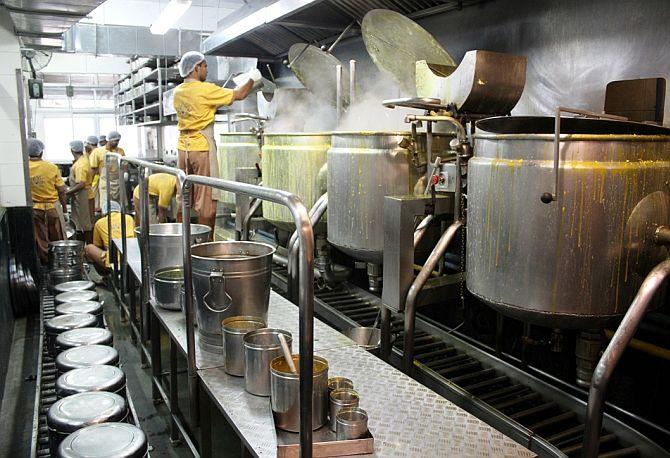
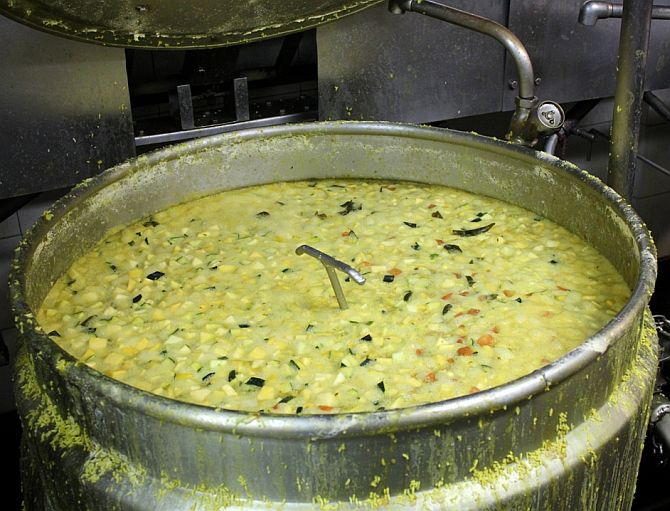
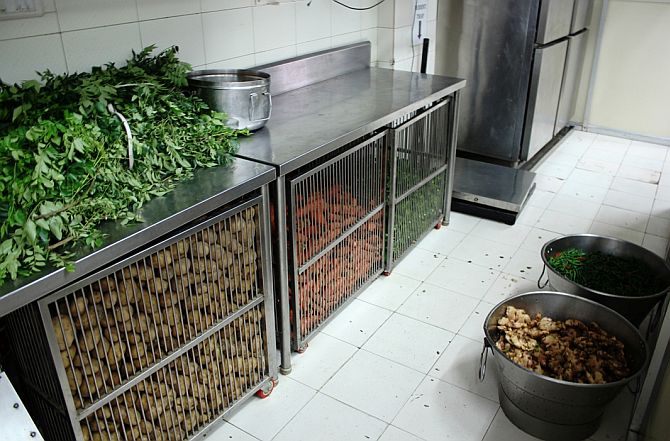
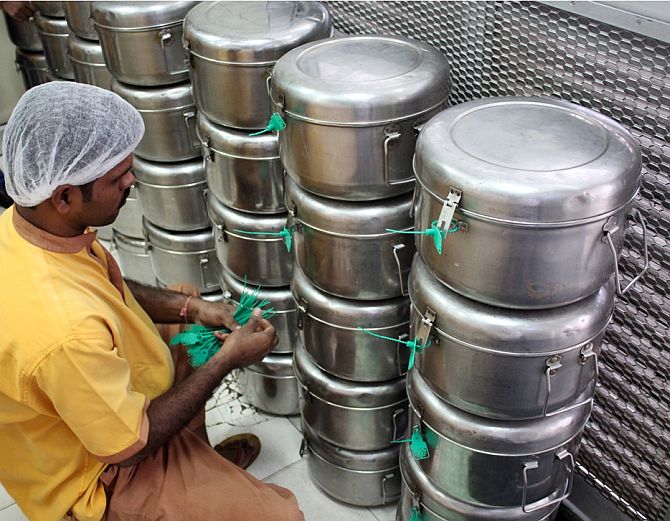
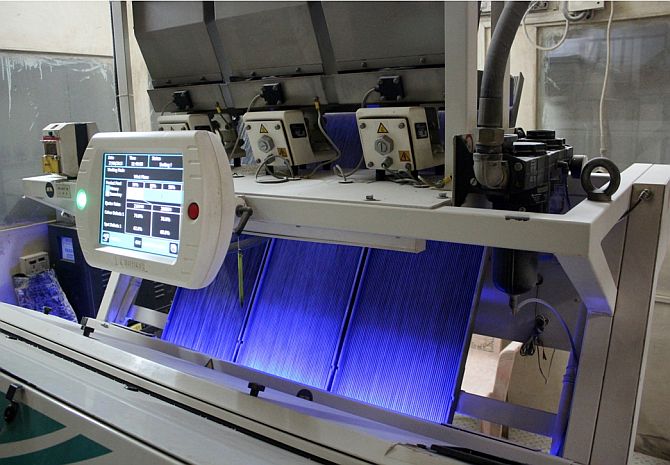
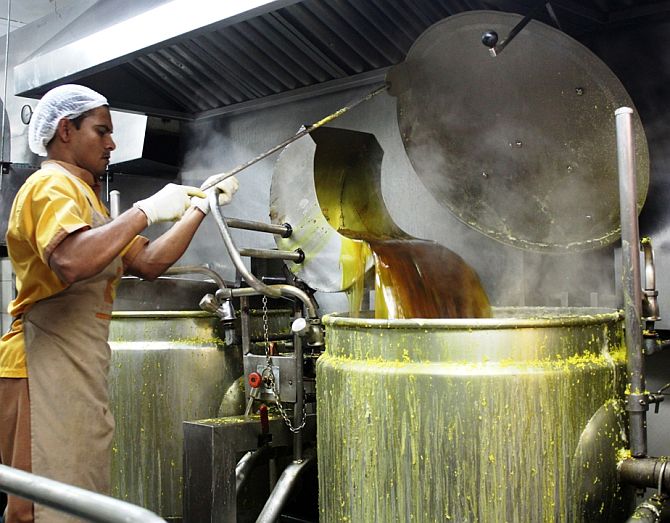
article